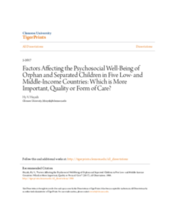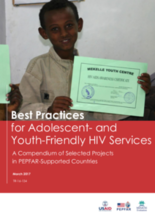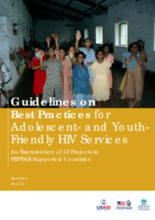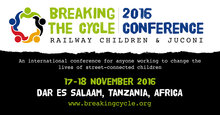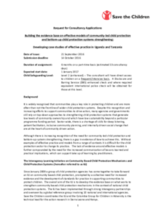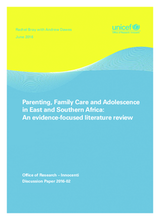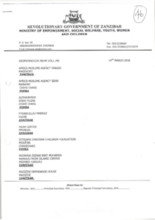Displaying 51 - 60 of 104
This study explored the extent to which components of quality of care predicted psychosocial well-being of orphaned and separated children (OSC), as well as the extent to which these components of quality of care and demographic factors moderated the associations between care settings and psychosocial well-being of orphaned and separated children (OSC).
This compendium contains the findings from a review of 13 projects providing HIV services to adolescents in PEPFAR-supported countries.
This document examines 13 projects serving HIV services to adolescents in PEPFAR-supported countries and provides a set of guidelines on best practices for adolescent and youth-friendly HIV programs.
Oak Foundation is recruiting a Programme Officer for the Child Abuse Programme and its work in East Africa, who will also have some administrative responsibility for Oak Foundation’s office in Dar-es-Salaam.
The NGOs Railway Children and Juconi International will host a conference from 17-18 November, 2016 in Dar es Salaam, Tanzania titled “Breaking the cycle: Reintegrating street-connected children: applying theory, developing practice”.
The conference is aimed at leaders, managers and practitioners from civil society, local government and academia that are working with or are concerned with street connected children and youth, and all children affected by family violence.
Building the evidence base on effective models of community-led child protection and bottom-up child protection systems strengthening – developing case studies of effective practice in Uganda and Tanzania
This paper examines existing knowledge on raising adolescents in east and southern African countries, including Kenya, Malawi, Mozambique, South Africa, Tanzania and Zimbabwe. According to the report, and within the context of these regions, parenting is understood to be handled through extended community and family networks.
The aim of this mixed-method study was to explore the trajectories of leaving home, and views and experiences among children and youth in the Kagera region in Tanzania, who have lived on the streets or been domestic workers.
Zanzibar’s Department of Social Welfare has announced a series of policies that it will implement in order to enhance the protection of children in alternative care in Zanzibar, particularly for residential care facilities.

